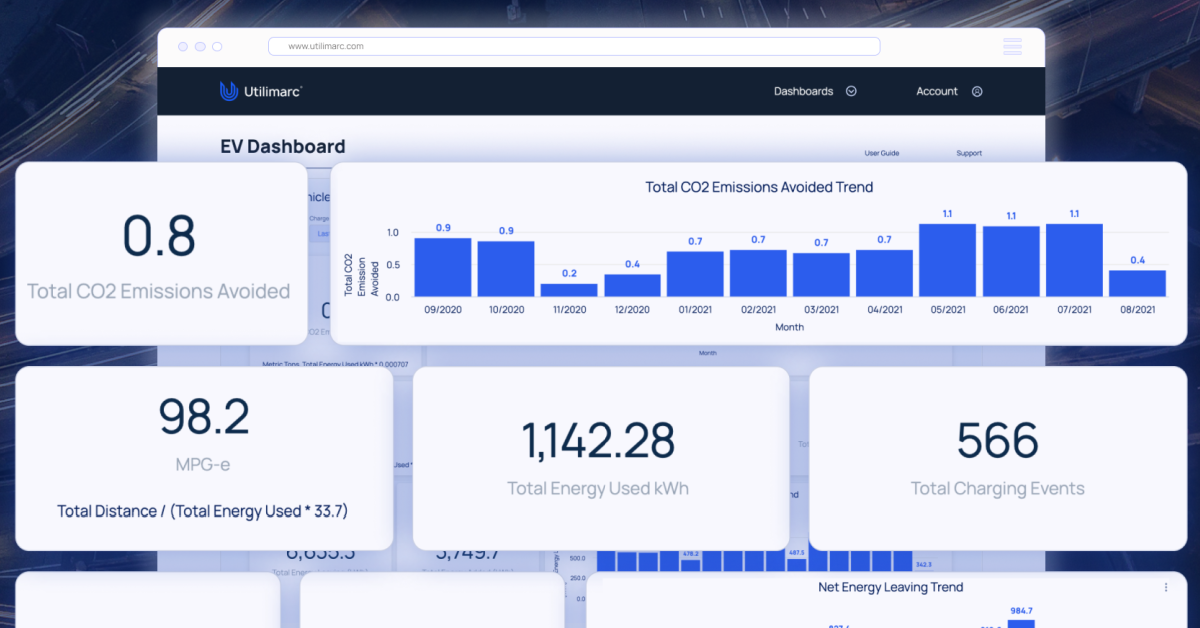
Considering a Green Fleet? Here’s Where the US is With Fleet Sustainability Practices
Having a green or ‘sustainable’ fleet is high on the priority list for many…but where exactly is the US on sustainable policies already in place?
If you’ve been keeping tabs on industry news – then it’s no surprise that sustainability is currently one of the most spoken about initiatives for the coming year(s). Governments and organizations, led by scientists around the world, have acknowledged the need to act when it comes to climate change and the need for increased sustainable policies in place.
The thing is, it’s not simply up to governments to make decisions surrounding sustainability. It’s up to businesses, organizations and fleets worldwide to make the change.
Why is sustainability important?
You might be asking, is sustainability really worth all of the effort that’s currently being put in. In short, yes, it is.
Whether your fleet is big or small, shifting for more sustainable practices can make a large impact. A good portion (nearly 1/3 of all emissions in the U.S.) are produced by the transportation industry. Some of the largest contributors are light-duty vehicles at 60% and medium/heavy-duty trucks at 23%. Which, when you think about it, measures up to utility and municipality fleets quite well.
The thing is, sustainability is not just something to integrate into your fleet management strategy because consumers are demanding it – rather, these practices hold tremendous benefits for fleets as well. One of the most notable being the reduction of long-term costs such as spending on oil, fuel and perhaps even maintenance.
Where is the U.S. With Fleet Sustainability?
In recent years, the U.S. has been trying to make waves when it comes to being more climate friendly. When authorities in the U.K. and Europe have promised to be fully electric when it comes vehicle manufacturing by 2035, many might wonder where exactly the U.S. fits in.
From creating sustainably focused policies to manufacturers keeping up with the demand for newer technologies, the goal of more sustainable practices may be more in reach than you might think.
Current policies in place
There are many policies currently active that fleet managers should have on their radar if they’re considering a greener fleet. Here are some of the most notable policies:
- Renewable Fuel Standard (RFS)
“The RFS program is a national policy that requires a certain volume of renewable fuel to replace or reduce the quantity of petroleum-based transportation fuel, heating oil or jet fuel.” – EPA.gov - Vehicle Fuel Economy and Greenhouse Gas (GHG) Emissions Standards
“Each model year, the EPA evaluates the GHG emissions performance of the light-duty (LD) fleet to determine the maximum allowable GHG emissions level to be designated a low GHG-emitting vehicle.” – EPA.gov - Procurement Preference for Electric and Hybrid Electric Vehicles
“The U.S. Department of Defense (DOD) must exhibit a preference for the lease or procurement of motor vehicles with electric or hybrid electric propulsion systems, including plug-in hybrid systems, if the vehicles are commercially available at a cost reasonably comparable to motor vehicles with internal combustion engines.” – Alternative Fuels Data Center
But these aren’t all. Here is a full list of alternative fuels incentives, regulations and federal programs.
Key players in the industry
There are plenty of key players and many organizations making strides when it comes to going green. Among them are Fleet Manager of the Year Award winner for 2020, Mark Stevens, and the City of Seattle’s green fleet.
Mark Stevens, fleet manager for the City of Sacramento, made headlines when he spoke about more efficient operational strategies and cost savings that a switchover to electric vehicles will bring, recently introducing a new electric vehicle strategy. Throughout his career, Stevens has worked to make his fleets more fuel efficient and less polluting, recently earning the Green Fleet Award in 2019, and Government Fleet’s Fleet Manager of the Year award last year. And it doesn’t end there.
The City of Seattle is also a leader in sustainability to look to for inspiration. They are a fleet committed to researching and implementing initiatives to reduce fuel consumption and greenhouse gas emissions whilst still exploring avenues of greener technologies. Over the years, the City of Seattle’s fleet has won multiple awards for green fleet recognition, most recently, the Climate Leader Award in 2018.
Who’s making EVs anyways?
Aside from the passenger vehicles that have begun to take to the mainstream in many parts of the world, we’re turning to the manufacturers that are creating momentum for utility and municipality fleets nationwide.
Recently, Ford has come out with one of their most popular vans, the E-Transit, in a fully electric model. Not far behind, they announced the model best known as a “work horse”, the F150 in a fully-hybrid option.
Workhorse is in full swing for creating electric delivery vehicles, having received an order for more than 6,000 units for a single entity in the U.S. and Canada. GM is following in their footsteps with a newly announced electric delivery van and a new EV business unit.
So, what does this mean exactly for fleets looking to go green? Only time will tell, but we can all hope for a more sustainable future.
How Utilimarc works with EVs
Utilimarc, for the past few years, has been working with electric vehicle data to help fleets nationwide understand how EVs could potentially a) impact their fleet and b) work within their asset acquisition strategy. Our aim is to help you understand the holistic lifecycle of electric utility vehicles and what the consequences are of introducing electric vehicles to a traditional internal-combustion fleet.
If you’re interested in learning more about how Utilimarc can help you make the most of your electric vehicle data, schedule a live demo with our analytics team.


